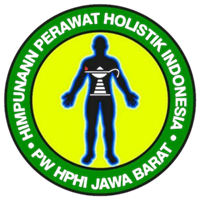Determinant Factors Associated with the Incidence of Varicose Veins among Pregnant Women
DOI:
https://doi.org/10.56359/gj.v6i2.796Keywords:
pregnant women, primary health center, varicoseAbstract
Introduction: Pregnancy causes physiological changes that may increase the risk of varicose veins, which can lead to discomfort and complications for both mother and fetus.
Objective: This study aims to identify factors associated with the incidence of varicose veins in pregnant women at Selindung Primary Health Center in 2025.
Method: This study used a quantitative method with a descriptive analytical design using a cross-sectional approach, which involved cross-tabulating the dependent and independent variables. The sample in this study was 110 women who underwent pregnancy check-ups at the Selindung Community Health Center. The sample size for this study was 60. Data analysis used the chi-square test with a 95% confidence interval.
Result: The results of this study were to determine the relationship between the dependent variable, namely the incidence of varicose veins, and the independent variables. The statistical test results for the family history variable yielded a p-value of 0.001, the pregnancy gravida variable yielded a p-value of 0.005, the gestational age variable yielded a p-value of 0.012, the prolonged standing habit variable yielded a p-value of 0.026, and the harmonic contraception variable yielded a p-value of 0.001.
Conclusion: The study concluded that the most influential factor was family history, with a POR value of 7.540. This is because genetic factors can influence the strength and elasticity of the vein walls, which are then exacerbated by physiological changes during pregnancy. Therefore, there is a significant association between family history and the incidence of varicose veins in pregnant women at the Selindung Primary Health Center in 2025.
Downloads
References
Aisyah, Ainil. 2021. Hubungan Berdiri Lama sebagai Faktor Risiko Varises Vena Tungkai Bawah pada Wanita Pedagang dan Pembeli di Pasar Gambir Tebing Tinggi. https://repositori.usu.ac.id/handle/123456789/46143
Amalia, R., Ulfa, S.,Hikmah, N.,& Azizah, N (2022). Pendidikan Kesehatan tentang ketidaknyamanan kehamilan pada trimester 3 dan cara mengatasinya. Jurnal Perak Malahayati. Vol 4, No 2. E : ISSN 2684-8899
Argaheni, N.Bayu (2012). Hubungan Graviditas dengan varises tungkai bawah. Perpustakaan uns.ac.id
Arikunto, S. (2023), Prosedur Penelitian: Suatu Pendekatan Praktik. Jakarta: Rineka Cipta.
Hafid, A & Hasrul, E. 2021. Hubungan Kejadian Pandemi COVID 19 dengan Kecemasan Ibu hamil Trimester ketiga. Jurnal Keperawatan Muhammadiya, 6 (2), 151-155
Hasanah, U., & Rahmawati, A. (2023). “Hubungan Riwayat Keluarga dengan Kejadian Varises pada Ibu Hamil di Wilayah Puskesmas Denpasar Selatan”. Jurnal Kebidanan Indonesia, 10(2), 120-128.
Kementerian Kesehatan Republik Indonesia (2021). Profil Kesehatan Indonesia. https://www.kemkes.go.id/index.php
Linda, T., & Rahman, S. (2022). “Hubungan Gravida Kehamilan dengan Kejadian
Varises pada Ibu Hamil”. Jurnal Ilmu dan Teknologi Kesehatan, 8(2), 77-
Lohr, Joann M.et al. Venous disease in women : Epidemiology, Manifestations, and treatment, Journal of Vascular Surgery, Vol 57 (4), 37S-45S
Lubis, D., Samutri, E.,Murniasih, E.,Dewi, I.,Haryanti, P & Wahyuningsih, W. 2022. Buku Ajar Keperawatan Maternitas. Yogyakarta : K-Media
Mafticha, E (2017). Buku Ajar Asuhan Kebidanan Ibu Hamil. Surakarta : CV Kekata Group. ISBN : 978-602-6612-33-2
Mardliyana, Nova E. 2022. Peningkatan Pengetahuan Ibu Hamil Tentang Penangana Keluhan Fisiologis dengan Media Video Pakbuto di Kelurahan Sutorejo Kecamatan Mulyorejo Surabaya. Jurnal Pengabdian Masyarakat Kebidanan. Vol 4 (2), 11-15
Notoadmojo, S. 2018. Metodologi Penelitian Kesehatan. Jakarta : Rineka Cipta. Pratiknyo, K.A.,Budiastuti, A.,Widodo,A (2016). Faktor risiko terjadinya varisesvena tungkai bawah pada pramuniaga di kota semarang. Jurnal Kedokteran Diponegoro, Vol 5: Nomor 1
Profil UPTD Puskesmas Selindung, 2022. Hal. 1-9
Puspita, R., & Kurniasari, R. (2022). “Faktor-Faktor yang Berhubungan dengan Kejadian Varises pada Ibu Hamil di Wilayah Kerja Puskesmas Sukoharjo. Jurnal Kesehatan Ibu dan Anak, 13(1), 45-52.
Puspitasari, R. D., & Pratiwi, N. L. (2023). “Faktor-Faktor yang Berhubungan dengan Kejadian Varises pada Ibu Hamil di Wilayah Kerja Puskesmas Wonosobo”. Jurnal Kebidanan Malahayati, 8(2), 112-119.
Puspita, Ocha della (2023). Respon Psikologis pada ibu muda dalam menghadapi kehamilan pertama. Diploma thesis, Universitas Muhammadiyah Malang.https://eprints.umm.ac.id/id/eprint/7354
Rahayu, T. R., & Sari, M. (2022). “Hubungan Usia Kehamilan dan Jumlah Kehamilan dengan Kejadian Varises pada Ibu Hamil”. Jurnal Ilmu Kesehatan Bhakti Husada: Health Sciences Journal, 11(1), 35-42.
Rahman, A,. & Sabhayati, A,.M 2022. Pengertian Pendidikan, Ilmu Pendidikan dan Unsur – Unsur Pendidikan. Jurnal Universitas Muhammadiah Makasar. Vol. 2. No. 1. 2022, Juni 2022. P-ISSN: 2775-4855.
Sabputra, R., Siregar, S. Deasy, & Ginting, R. (2019). Faktor yang mempengaruhi varises vena tungkai bawah pada guru SD di desa securai selatan. Jurnal Kesehatan Masyarakat & Gizi, Vol 2 : No 1, e-ISSN : 2655-0849
Sari, P., & Pratiwi, A. (2022). “Faktor-Faktor yang Berhubungan dengan Kejadian Varises pada Ibu Hamil di Wilayah Kerja Puskesmas Sukaraja”. Jurnal Bidan Komunitas, 4(2), 74-81.
Sugiyono 2015. Metode Penelitian Kombinasi (Mix Methods). Bandung: Alfabeta.
Yulista, W., & Supratno, A. (2022). “Hubungan Lama Berdiri dengan Kejadian Varises pada Ibu Hamil Trimester Tiga di Wilayah Kerja Puskesmas Kalasan. Jurnal Ilmu dan Praktik Kebidanan Indonesia, 5(1), 22-29.
Downloads
Published
How to Cite
Issue
Section
License
Copyright (c) 2025 Wanda Dwi Putri, Agustin, Rima Berti Anggraini

This work is licensed under a Creative Commons Attribution 4.0 International License.















